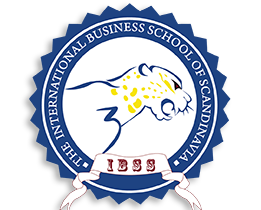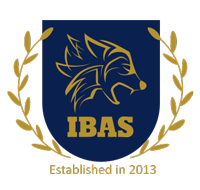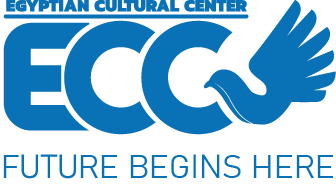MASTER OF BUSINESS ADMINISTRATION
IBSS + IBAS + Level 7 Diploma Awarded By ATHE



Provides َQualification in business for students interested in understanding the working nature of business in a competitive environment.
The objective is to develop learners into broadly educated business decision makers who understand the nature of business as a whole, with the tools and techniques applicable to a wide variety of business situations.
Accreditation
- International Business School of Scandinavia (IBSS): Accredited by ASIC UK and member in CPD, IACBE, QISAN UK and EADL
- International Business Academy of Switzerland (IBAS): Accredited by ISO29990, Swiss Private School, EduQua, ATHE and member in ACBSP and CPD.
- ATHE is a global awarding organisation regulated by Ofqual and other UK and international regulators. We work with 200 recognised centres in over 45 countries to complement our strong brand presence in the UK.
The program offers a focused, yet diversified curriculum that will enhance the knowledge and problem-solving skills of both managers and executives
This program is designed to provide professionals with the right skills to meet the challenges of an increasingly competitive global business environment.
In line with the fast pace economy, students will be offered with integrated courses led by experienced academicians and industry practitioners in an interactive learning environment with particular emphasis on practicality and industry-driven practices.
- Demonstrate managerial and leadership qualities through communicating and working effectively.
- Demonstrate the skills and principles of lifelong learning in their academic and career development.
- Apply theories and concepts in the decision making process in the business environment.
- Critically evaluate theories and concepts of business.
- Generate solutions to problems using scientific and critical thinking skills.
- Conduct research with minimal supervision and adhere to legal, ethical and professional practices.
| MODULE NAME |
|---|
| MARKETING MANAGEMENT |
| MANAGERIAL ECONOMICS |
| ACCOUNTING AND FINANCE FOR MANAGERS |
| PERSONAL DEVELOPMENT FOR LEADERSHIP & STRATEGIC MANAGEMENT |
| ORGANIZATIONAL BEHAVIOR |
| INTERNATIONAL BUSINESS ENVIRONMENT |
| STRATEGIC PLANNING |
| STRATEGIC HUMAN RESOURCE MANAGEMENT |
| PROJECT MANAGEMENT |
| RESEARCH FOR STRATEGIC DEVELOPMENT |
| ELECTIVE SUBJECTS |
| INTERNATIONAL MARKETING |
|
OPERATIONS MANAGEMENT |
| SUPPLY CHAIN MANAGEMENT |
| PURCHASING AND PROCUREMENT MANAGEMENT |
| QUALITY CHANGE MANAGEMENT |
1
MARKETING MANAGEMENT
Unit Aims:
To equip students with theoretical and practical knowledge in the area of marketing relevant to managers.
Learning outcomes:
Upon completion of this subject, students should be able to:
- Develop a good understanding of major issues related to the nature and functioning of marketing in organizations.
- Acquire relevant knowledge on factors related to and that affects the dynamics of How organizational marketing functions work.
- Demonstrate their knowledge and understanding of the subject matter though group Discussions and written assignments.
2
MANAGERIAL ECONOMICS
Unit aims:
To expose students to in-depth theoretical and practical Knowledge in managerial economics.
Learning outcomes:
Upon completion of this subject, students should be able to:
1.Apply the economic concepts and techniques in the business settings
2.Do decision making in business operations by applying the necessary knowledge in
economics
3.Demonstrate their knowledge and understanding of the subject matter through
group discussions and written assignments.
3
ACCOUNTING AND FINANCE FOR MANAGERS
Unit aims:
To equip students with theoretical and practical knowledge in accounting and finance relevant to managers.
Learning outcomes:
Upon completion of this subject, students should be able to:
- Develop a good understanding of the major theories and issues related to the nature and roles of accounting and finance in business organizations.
- Acquire relevant knowledge on factors related to accounting and finance and the affects they
have on the dynamics of how organizations function. - Demonstrate their knowledge and understanding of the subject matter though group discussions and written assignments.
4
PERSONAL DEVELOPMENT FOR LEADERSHIP & STRATEGIC MANAGEMENT
Unit aims:
This unit aims to help learners develop their own personal leadership and management skills in the context of the creation and achievement of organizational vision and strategic direction.
Learning outcomes:
Upon completion of this subject, students should be able to:
- Understand how knowledge and skills in leadership and strategic management support the creation and achievement of organizational vision and strategy
- Understand how to develop and communicate organizational vision
- be able to manage development of own personal knowledge and skills in leadership and strategic management to support achievement of personal and organizational vision
- be able to reflect on the benefits of personal development in the achievement of personal growth and organizational vision and strategy.
5
ORGANIZATIONAL BEHAVIOR
Unit aims:
The aim of this unit is to help learners develop an understanding of how organizational behavior, structure, Culture, motivation, creativity and leadership impact on an organization’s effectiveness and efficiency.
Learning outcomes:
Upon completion of this subject, students should be able to:
- Understand leadership behavior theory and practice.
- Understand how organizational structures and culture impact on the effectiveness of the organization.
- Understand how organizations can improve employee effectiveness to respond to business opportunities
- Understand how organizations can motivate employees in order to improve their efficiency and effectiveness
6
INTERNATIONAL BUSINESS ENVIRONMENT
Unit aims:
The unit will enable learners to explore the changing international Business environment and develop knowledge and understanding of how organizations respond.
Learning outcomes:
Upon completion of this subject, students should be able to:
- Be able to analyse the international business environment
- Understand the impact of globalization and international trade
- Understand the international markets in which businesses operate
7
STRATEGIC PLANNING
Unit aim:
The aim of this unit is to develop the knowledge, Understanding and skills necessary to develop an Organizational strategic plan
Learning outcomes:
Upon completion of this subject, students should be able to:
- Understand the foundations for developing organizational strategy
- Understand the external environment affecting organizations
- be able to review an organization’s strategy and business plans
- be able to develop strategy options for an organization
- Understand how to create a strategic plan to meet business objectives
8
STRATEGIC HUMAN RESOURCE MANAGEMENT
Unit aims:
The aim of this unit is to help learners acquire knowledge and understanding of human resource management Strategy and its impact on the efficiency of an organization.
Learning outcomes:
Upon completion of this subject, students should be able to:
- Understand the factors affecting human resource management strategies in organizations
- Understand how strategic human resource management contributes to the achievement of the strategic plans of organizations
- Understand how to prepare human resource management strategies for organizations
- Be able to develop a human resource management strategy for an organization
9
PROJECT MANAGEMENT
Unit aims:
To provide the student with greater understanding Of analytical skills for solving problems in project management, To learn mathematical models which aid in decision Making process and to develop critical thinking and Knowledge in project management’s theory and Practices. Student also will learn how to use software Packages in project management practices.
Learning outcomes:
Upon completion of this subject, students should be able to:
1. Use the analytical skills for problem solving in project management
2. Use and differentiate the mathematical models in decision making process
3. Demonstrate mastery in using software project management packages.
10
RESEARCH FOR STRATEGIC DEVELOPMENT
Unit aims:
The aim of this unit is to develop the knowledge, Understanding and skills required to carry out research to meet the needs of strategic business management.
Learning outcomes:
Upon completion of this subject, students should be able to:
- Be able to formulate a research proposal relating to strategic business development
- Be able to use different research methodologies to gather sufficient and valid data
- Be able to present research findings in an appropriate format for a target audience
- Be able to evaluate own skills while undertaking research
ELECTIVE SUBJECTS
SELECT ONE:
1-INTERNATIONAL MARKETING
UNIT OBJECTIVES
The objectives of this subject are to:
- Develop sound theoretical and practical understanding of International Marketing
- Apply theories in creating opportunities and solving problems in International Marketing situations
LEARNING OUTCOMES:
Upon completion of this subject, students should be able to:
- Evaluate and apply International Marketing strategies, plans and tactics to a range of International marketing scenarios
- Explain the constraints faced by marketers in conducting International Marketing research
- Prepare an International marketing plan
- Evaluate the different types of market entry methods
- Analyze the constraints faced by marketers in terms of political, legal, economic, Cultural and social factors.
2-OPERATIONS MANAGEMENT
UNIT OBJECTIVES
To equip students with theoretical and practical knowledge in handling International Business relevant to managers.
LEARNING OUTCOMES:
Upon completion of this subject, students should be able to:
- Understand the important reasons of studying Operation Management (OM).
- Understand how OM is related to other functional areas in an organization.
- Types of problems that are faced by Operations Managers.
- Understand various issues faced by leading organization both in service and manufacturing.
- What are the common decision-making approaches.
3-SUPPLY CHAIN MANAGEMENT
UNIT OBJECTIVES
The objectives of this subject are to:
To develop an understanding of key drivers of supply chain performance and their interrelationships with strategy and other functions of the company such as marketing, manufacturing and accounting.
LEARNING OUTCOMES:
Upon completion of this subject, students should be able to:
- Understand the basic framework of SCM
- Identify various performance metrics of SCM
- Match supply and demand in an uncertain business environment
- Understand the value of partnerships and strategic alliances in SCM
4-PURCHASING AND PROCUREMENT MANAGEMENT
UNIT OBJECTIVES
- To develop an understanding of perspectives on purchasing/procurement; the stages of purchasing development and future trends in purchasing development; and factors influencing the internal and external status of purchasing.
- To consider the different purchasing structures and how they interface with other functions and the implementation of structural change.
- To develop the ability to incorporate knowledge on the importance of ICT in enhancing the purchasing function.
- To understand the complexity of product and process innovation, new product development, and supplier development.
LEARNING OUTCOMES:
Upon completion of this subject, students should be able to:
- Understand the role of purchasing as a strategic function
- Evaluate purchasing factors: strategy, tactics and operations.
- Analyse the resource requirement for the implementation of strategic plans for the purchasing function
- Analyse the sources of conflict which may arise within the purchasing function
5-QUALITY & CHANGE MANAGEMENT
UNIT OBJECTIVES
Expose students to in-depth theoretical and practical knowledge in change management.
LEARNING OUTCOMES:
Upon completion of this subject, students should be able to:
- Apply the knowledge on the process of change, models of change that can be applied in real workplace settings.
- Understand the quality initiatives as a tool to change the culture, systems and process in organization. Some of the tools that can be applied by students are Total Quality, Business Process Re-engineering (BPR) and KAIZEN i.e. bringing about change in organization.
Cash
Installment *
*Installment Plan has to pay 7500 LE for Application Fee and 7500 LE for 5 Installments.
Cash
Installment *
*Installment Plan has to pay 700$ for Application Fee and 700$ for 4 Installments.
